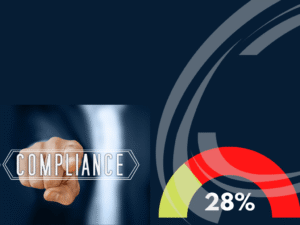We Help Get Your Results
Boost your business potential with tailored strategies, expert consultation, and hands-on assistance designed for your success.
Governance & Risk
Governance is the system by which companies are directed and controlled, essential for all businesses to ensure accountability, fairness, and transparency in their operations.
Effective governance helps a business manage its resources, engage with stakeholders, and achieve its objectives, regardless of its structure.
Why SBAAS
SBAAS is your premier partner in governance and compliance.
Our Managing Director, holding an MBA and a Masters of Business Law, has extensive experience in crafting policies and procedures for various organisations, including charities, small businesses, and government agencies. He has developed tax policies for multinational corporations, meeting stringent Australian legislative requirements, and provided in-depth governance training to boards. As a member of both the Australian Institute of Company Directors and the Institute of Company Directors Australia, his expertise is both broad and deep
Governance & Risk

Our Managing Director has also helped multinational corporations and sole traders develop effective risk management strategies, showcasing our ability to tailor solutions to any business size and type. Risk management is a critical aspect of governance, ensuring that potential threats to success are identified and mitigated.
SBAAS offers a wide range of services to enhance governance and leadership:
- Board and CEO Support: We assist boards and CEOs through changes and challenges, providing advice on critical issues like board consulting, succession planning, and board effectiveness.
- CEO Succession Planning: Our experts guide the development and support of CEOs who can lead effectively now and in the future.
- Policy and Procedure Development: We create policies and procedures that ensure good governance and compliance across all areas of your business.
At SBAAS, we are dedicated to helping you navigate the complex world of governance. Contact us to enhance your organisation’s governance and leadership, ensuring a future of effective and compliant management.

Professional Policy and Procedure Writing
SBAAS offers professional policy writing services, crafting tailored policies and procedures to help organisations excel in complex regulatory environments.
With over 25 years of experience advising non-profit and commercial sectors, their team ensures compliance with local, state, and federal regulations, including updates like the Closing Loopholes Act 2023.
SBAAS specialises in finance, environment, governance, human resources, quality, risk, and work health and safety, providing ISO-compatible documents aligned with the UN Sustainability Development Goals.
Frequently Asked Questions
SBAAS brings over 20 years of senior management experience, offering customised solutions in business coaching, executive mentoring, and strategic planning.
Our proven track record in leading SMEs to success makes us a trusted partner for your business needs.
SBAAS stands out due to our personalised approach, ensuring each service is meticulously tailored to fit your unique needs.
With a focus on creating shareholder and stakeholder value, we offer a comprehensive suite of services that covers all aspects of strategic development and execution.
Our fees vary depending on the scope and complexity of the project.
We provide an initial consultation to understand your needs and then offer a detailed proposal with clear pricing.
SBAAS has experience across various industries, including trades, manufacturing, hospitality, real estate, healthcare, education, and not-for-profit sectors, bringing knowledge and insights to each project.
Getting started is easy. Book a discovery call for an initial consultation where we can discuss your business challenges and aspirations.
From there, we’ll outline how our services can meet your needs and the steps to begin our partnership.
Corporate governance involves the systems, rules, and processes through which a company is controlled and directed.
It is vital for ensuring accountability, fairness, and transparency in a company’s relationship with its stakeholders.
Good governance practices help companies make effective decisions, comply with the law, and meet the needs of stakeholders, thereby enhancing the company’s reputation and long-term success.
A company can improve its governance structure by clearly defining roles and responsibilities for the board, management, and stakeholders. Implementing solid policies and procedures, ensuring board members have the necessary skills and experience, and promoting ethical behaviour and accountability across the organisation are crucial.
Regular reviews and updates of governance practices in response to changes in the business environment or regulatory landscape are essential for maintaining effective governance.
Risk management identifies, assesses, and controls threats to an organisation’s capital and earnings. It is a crucial aspect of governance because it involves the strategic oversight of risks to protect the company’s assets and shareholder value.
Effective risk management supports good governance by ensuring the organization can anticipate and mitigate potential risks before they escalate into more significant problems.
Establishing a practical risk management framework involves identifying the risks that can affect the organisation, assessing their likelihood and potential impact, and implementing mitigation strategies. Best practices include integrating risk management into the corporate governance structure, ensuring top management commitment, defining clear roles and responsibilities for risk management, and establishing regular monitoring and reporting mechanisms. It’s also essential to foster a risk-aware culture throughout the organisation.
In Australia, directors face significant risks for poor governance due to stringent legal and regulatory standards. They are legally obligated to act in the company’s best interest, ensure financial accuracy, and comply with laws and regulations.
Failure to meet these responsibilities can lead to severe consequences, including:
- Legal Liability: Directors can be personally liable for breaches of their duties, potentially facing legal action, fines, or compensation orders.
- Reputational Damage: Poor governance can harm the reputation of the company and the directors themselves, affecting trust and confidence among stakeholders, investors, and the public.
- Financial Loss: Mismanagement or negligence can lead to financial losses for the company, impacting its viability and leading to potential personal financial liability for directors.
- Regulatory Penalties: Regulators like ASIC (Australian Securities and Investments Commission) and the ATO (Australian Taxation Office) can impose penalties, disqualifications, and other enforcement actions against directors for governance failures.
- Insolvency Risks: Directors may be held accountable for insolvent trading if they allow the company to incur debts when it cannot pay its debts as and when they fall due.
Directors must understand their responsibilities and ensure robust governance practices to mitigate these risks and safeguard the company and its interests.
Our Clients

























Our Clients - Not for Profit











Our Clients - Government






Unleashing the Power of Generative AI – Essential Strategies for Australian Small Businesses
Discover how generative AI is transforming Australian small businesses. Gain practical insights into harnessing AI

Stuck in Neutral: Why Australian Small Businesses Stall and How to Restart Growth
Many Australian SMEs hit a growth ceiling—but it’s not inevitable. Learn the warning signs of

Thriving Amid Global Tariffs: Essential Strategies for Australian Businesses
Explore how Australian businesses can navigate global tariffs and trade shifts effectively. Gain strategic insights

Stop Guessing: Is Your Business Really Healthy? Here’s How to Know for Sure
Is your business on track or slowly heading for trouble? Use our comprehensive SME Health

Capturing Consumer Attention – Strategic Insights for Australian Small Businesses
Discover strategies for Australian small businesses to capture consumer attention amid evolving trends effectively. Explore

One Wrong Step: Why Skipping Appropriate Policies and Procedures Can Sink Your Small Business
Australian small businesses move fast, yet too many forget that appropriate policies and procedures are





